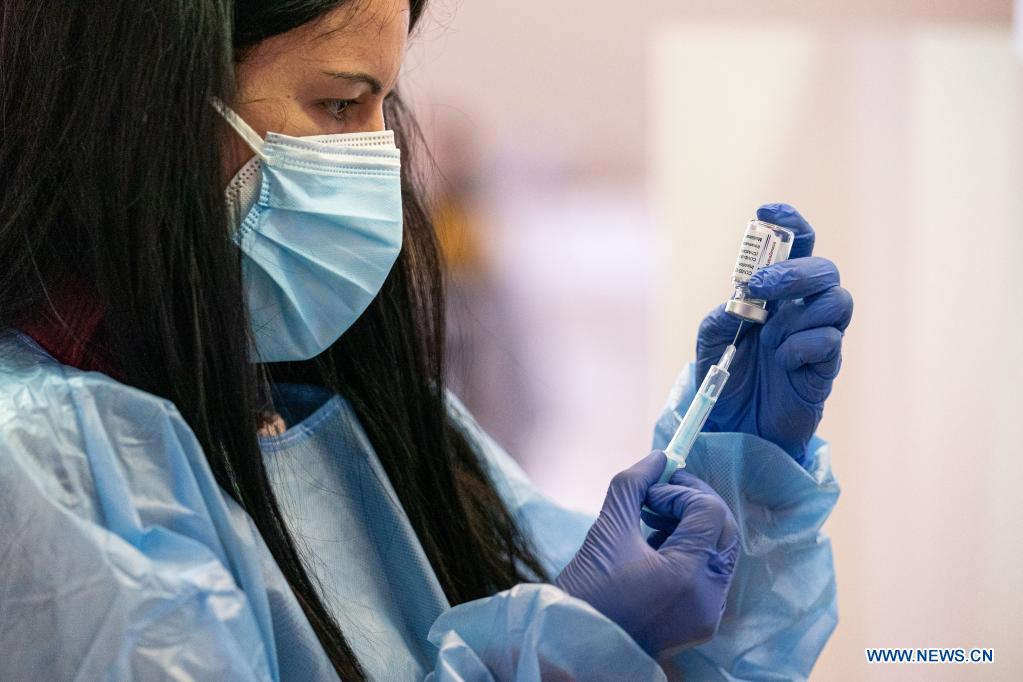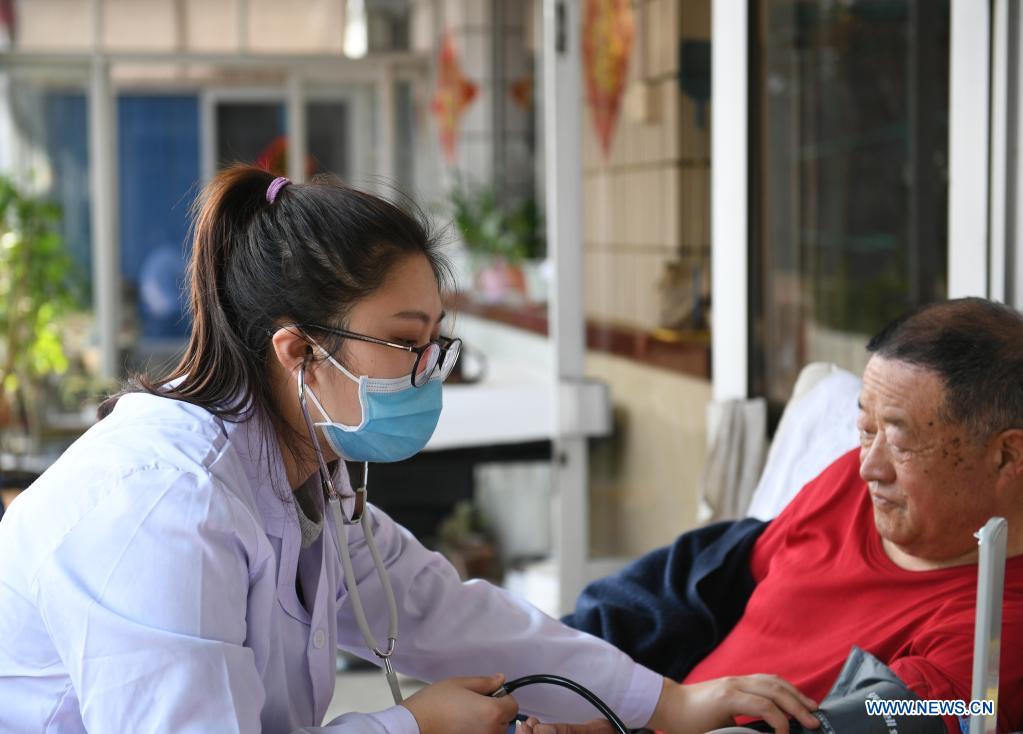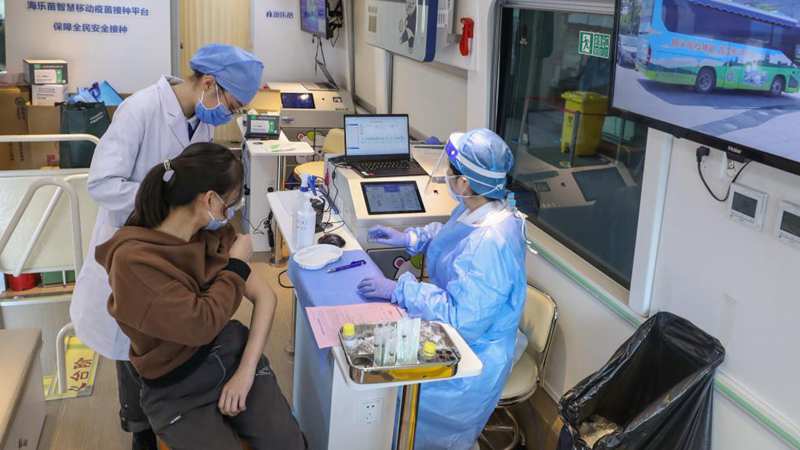
A health worker prepares a dose of AstraZeneca COVID-19 vaccine at a vaccination site in Cornella, Spain, April 7, 2021. The European Medicines Agency (EMA) confirmed on Wednesday that the occurrence of blood clots with low blood platelets are strongly associated with the administration of AstraZeneca COVID-19 vaccine, but should be still listed as very rare side effects. (Photo by Joan Gosa/Xinhua)
BRUSSELS, April 7 -- The European Medicines Agency (EMA) confirmed on Wednesday that the occurrence of blood clots with low blood platelets are strongly associated with the administration of AstraZeneca COVID-19 vaccine, but should be still listed as very rare side effects.
In its latest assessment, EMA experts told the media that the reported combination of blood clots and low blood platelets is very rare, and the overall benefits of the vaccine in preventing COVID-19 outweigh the risks of side effects.
The drug regulator said in a statement that there were no specific risk factors, including age, although most of the cases reported have occurred in women under 60 years of age within two weeks of vaccination.
The findings were released after the watchdog assessed the over 80 cases of people who developed clots in blood veins and in arteries after receiving the jabs. Eighteen of these cases have proved fatal.
The agency thus reminded healthcare professionals and people receiving the vaccine to remain aware of the possibility of the occurrence of the side effects within two weeks of vaccination.
"COVID-19 is a very serious disease with high hospitalisation and death rates and everyday COVID is still causing thousands of deaths across the EU. This vaccine has proven to be highly effective - it prevents severe disease and hospitalisation, and it is saving lives," EMA chief Emer Cooke told a news conference.
EMA's safety committee chair, Sabine Straus, said the investigation was unable to determine the cause of the blood clotting and that further investigations, which involve manufacturer AstraZeneca, have been commissioned.
The scientific review came after several European countries halted or suspended the vaccine's rollout in view of reported risks.













